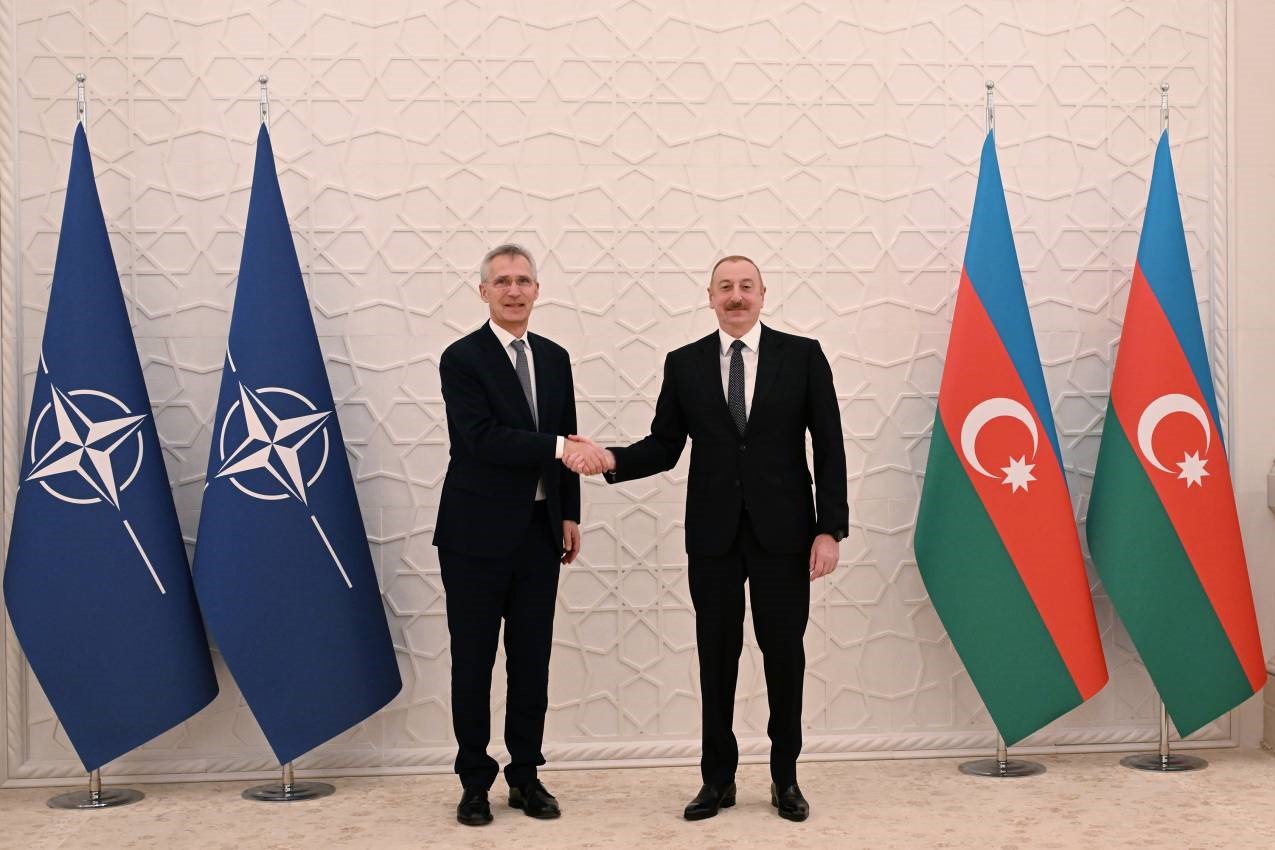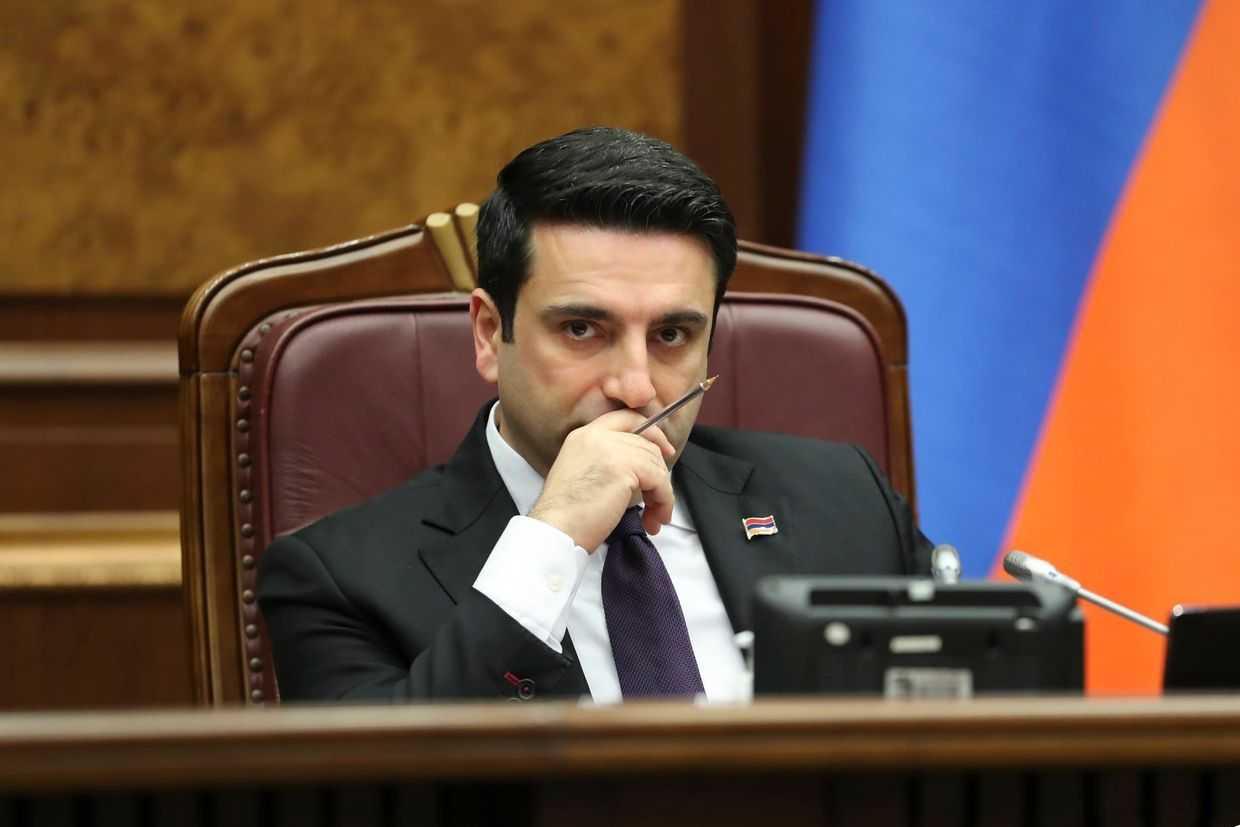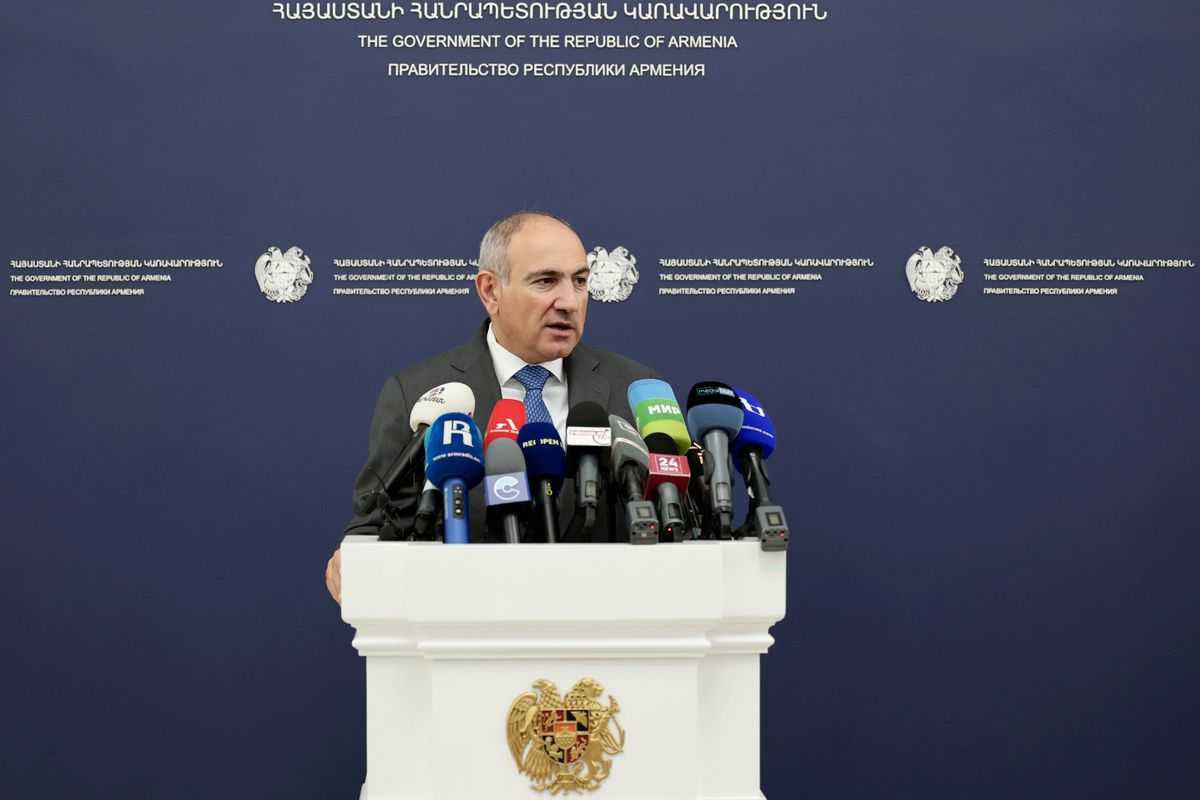
Armenia and NATO have announced that a new partnership programme between them will be approved ‘soon’.
The Individually Tailored Partnership Programme (ITPP) would coordinate ties between Yerevan and the security bloc, replacing an older agreement adopted in 2006.
In Stoltenberg’s annual report for 2023, the NATO chief’s office described ITPP as a programme that ‘brings together all aspects of NATO’s collaboration into a strategic and goal-oriented framework’ in a process that spans a four-year cycle.
The report states that partner states could ‘choose to deepen cooperation with NATO by participating in the planning and review process’ within the framework of ITPP. The planning and review process would help enhance the capabilities of partner states through multinational training and exercises, in addition to measuring progress made in security and the modernisation of a partner state’s military.
NATO’s Secretary General Jens Stoltenberg arrived in Armenia on Tuesday as the last leg of his South Caucasus tour. He met with several senior officials in the country, including Prime Minister Nikol Pashinyan and President Vahagn Khachaturyan.
In a press briefing following a cabinet meeting, Pashinyan expressed his hope that ITPP would be approved soon.
‘In light of the developments in our region, it is extremely important for Armenia to strengthen its resilience and develop appropriate defence capabilities’, said Pashinyan.
Pashinyan also said that Armenia was interested in expanding the partnership with the alliance and individual member states.
Later that day, Stoltenberg told Public TV that the bloc and Armenia had ‘a huge potential for doing more together’.
During the interview, Stoltenberg stated that the ITPP would allow NATO to support Armenia in developing its defence, security policy, and reform its institutions.
‘And we are ready to do so knowing that, of course, we will only do as much as Armenia is ready to do together with us’, he said.
In January NATO’s South Caucasus representative, Javier Colomina, told Armenpress that NATO had ‘high expectations and hopes’ that the ITPP would be approved ‘in the next few weeks’.
‘We are now working on the new ITPP with quite ambitious goals. We are working on training opportunities. We are working on all kinds of partnership work, different tools that we have’, said Colomina.
During his visit to Armenia, Stoltenberg also discussed the ongoing peace talks with Azerbaijan. He also warned that if ‘[Russian President Vladimir] Putin succeeds in Ukraine, there is a real risk that his aggression will not stop there and that other authoritarian entities will be inspired by it’.
Azerbaijan’s ‘crucial’ gas and Georgia’s prospective NATO membership
The day prior, Stoltenberg visited Tbilisi to meet with Prime Minister Irakli Kobakhidze and President Salome Zurabishvili.
In a joint press conference with Kobakhidze, Stoltenberg stated that Georgia’s progress towards EU membership would ultimately impact its progress towards membership in NATO.
‘It is important that Georgia continues to strengthen domestic reforms, democratic values and the rule of law. Including through free and fair parliamentary elections in October this year’, said the NATO chief.
In his turn, Kobakhidze spoke about Georgia’s participation in NATO operations as ‘significant contributions’ to the ‘solidification of an overall Euro-Atlanic security’.
The Prime Minister’s remarks were met with some criticism locally, with MP Teona Akubardia from the Reform party criticising Kobakhidze for not touching on Russia’s plans to establish a naval base in Abkhazia, among other things, in his speech.
Stoltenberg began his tour of the South Caucasus in Azerbaijan, where he met with President Ilham Aliyev and his cabinet on Sunday.

In an interview with pro-government media outlet Azertac, Stoltenberg stressed Azerbaijan’s role in providing energy to NATO members, which he stated enabled ‘NATO allies in Europe to be independent from Russia as a gas supplier’.
Following Russia’s invasion of Ukraine, several European countries looked to Azerbaijan as a source of oil and natural gas.
During the interview, Stoltenberg said that there was a demand in the West to increase imports of Azerbaijani gas from 12 billion cubic metres to 20 billion.
‘Direct export from Azerbaijan of power will further increase the importance of Azerbaijan as an energy supplier to NATO allies in Europe’, said Stoltenberg.
Stoltenberg also cited Aliyev as saying that Armenia and Azerbaijan were now ‘closer to a peace agreement than ever before’.
‘There are some remaining issues that have to be solved, but I really hope that both parties, both Azerbaijan and Armenia, seize this opportunity […] to establish the conditions for lasting peace’, said the NATO chief.
He also similarly warned that a Russian victory in Ukraine would prove to be dangerous for ‘all of us, including Azerbaijan and NATO allies’, calling on Baku to join the economic sanctions against Russia.
Russia condemned Stoltenberg’s tour of the South Caucasus, with Kremlin Spokesperson Dmitry Peskov stating that NATO’s desire to gain a foothold in the Caucasus was ‘visible to the naked eye’.
On Wednesday, Russia’s Foreign Ministry Spokesperson Maria Zakharova accused NATO of seeking to open a ‘second front’ against Russia in its war with Ukraine.
‘[NATO] has a maximum task, namely to open a second front in Transcaucasia against our country and, in general, set the region on fire again’, said Zakharova.









